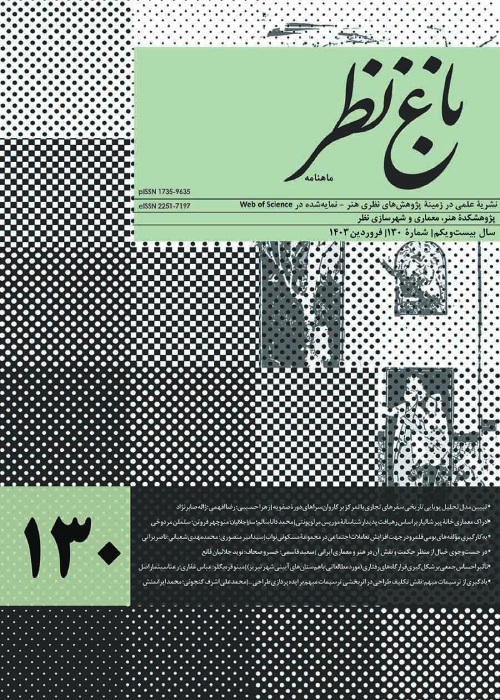Farabi's ideas and its application in citizenship participation
Author(s):
Abstract:
The relation between philosophy and other disciplines is a prime area of concern to many scholars. In today's circumstances, philosophy as a knowledge that deals with matters of interpretation needs to have a stronger role beyond its primary principles and should lead to real changes in the society. In fact, determining the relation between philosophy and urban management has been one of the primary goals of the current research. The emergence of the phenomenon of urbanization and its consequences has provoked the attention of scholars from different disciplines. What is strongly felt about when studying this phenomenon is the role of researchers in the field of Islamic culture such as Farabi who have conducted historical researches about the concept of city and society. In fact, Islamic philosophers had a key role in providing definitions about the concept of city and its problems since ancient times. Among these scholars, Farabi’s who is also known as “The Second Teacher” has been frequently cited in related researches on urbanization and citizen’s affairs.The purpose of this study is to study Farabi’s planning talent for urban issues and especially those which involve the participation of citizens.The research method used in this study based on an analytical-descriptive study of the documents and library resources. At first, the researcher looked into Farabis’ views by using the available library and document resources. Then, the relation between these ideas and issues related to urban science is discussed through an analytical method.Results showed that the views expressed by Farabi had a great affinity and similarity with the contemporary views of modern scholars. In other words, it was realized by means of the current research that Farabi was a community–oriented and city-oriented person which had special foresight in relation to urban knowledge.His views are so close to public participation which can be one of the best important issues in human- oriented planning. These results make the role of philosophy between human disciplines especially in urban disciplines more applicable.In today's world, urbanization and city, issues related to utopia are related with sustainable urban development. One of the principles of sustainable urban development is the promotion of social justice in a way that limited resources should be divided equally between the people and civil rights of individuals are followed. This is what the current research realized about Farabi.The results of studies over the ideas of this great scholar indicate that he possessed supreme senses such as perfectionism, pluralism, philanthropy and concerns about humanistic values such as justice, cooperation, participation and teaching. The principles that Farabi has highlighted as necessary for the promotion of societies, the progress of citizens and the stability of civic societies are in fact the same mechanisms required for achieving the utopia which mankind is still looking for. Interestingly, about 1000 years ago, Farabi perfectly nourished this in his mind and presented it as a precious gift to humanity. Although many scholars believe that Farabi’s utopia is presented in an abstract and imaginative method, it seems that his views can be used as a model city for a utopia that would have the required characteristics.Finally, the interaction between science, philosophy and urban scholars will release them from their passive fence and will give them a more prominent role in affairs that requires cooperation of all related fields.
Keywords:
Language:
Persian
Published:
Bagh-e Nazar, Volume:9 Issue: 21, 2012
Pages:
13 to 20
magiran.com/p1033692
دانلود و مطالعه متن این مقاله با یکی از روشهای زیر امکان پذیر است:
اشتراک شخصی
با عضویت و پرداخت آنلاین حق اشتراک یکساله به مبلغ 1,390,000ريال میتوانید 70 عنوان مطلب دانلود کنید!
اشتراک سازمانی
به کتابخانه دانشگاه یا محل کار خود پیشنهاد کنید تا اشتراک سازمانی این پایگاه را برای دسترسی نامحدود همه کاربران به متن مطالب تهیه نمایند!
توجه!
- حق عضویت دریافتی صرف حمایت از نشریات عضو و نگهداری، تکمیل و توسعه مگیران میشود.
- پرداخت حق اشتراک و دانلود مقالات اجازه بازنشر آن در سایر رسانههای چاپی و دیجیتال را به کاربر نمیدهد.
In order to view content subscription is required
Personal subscription
Subscribe magiran.com for 70 € euros via PayPal and download 70 articles during a year.
Organization subscription
Please contact us to subscribe your university or library for unlimited access!


